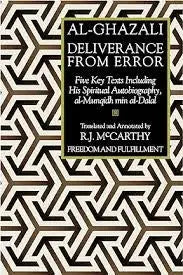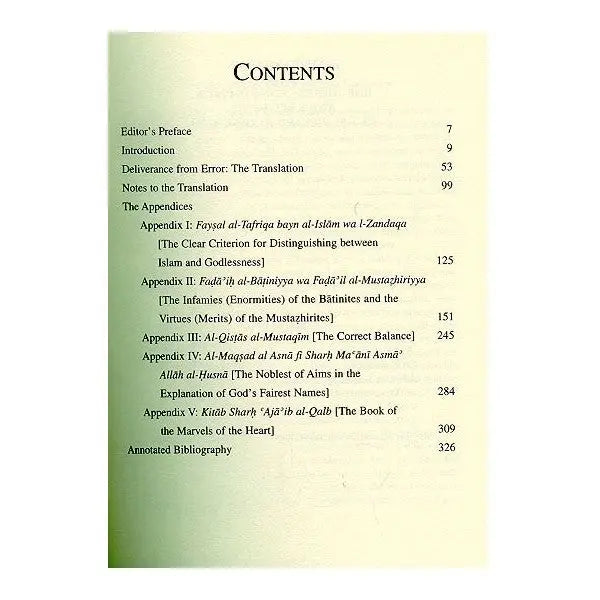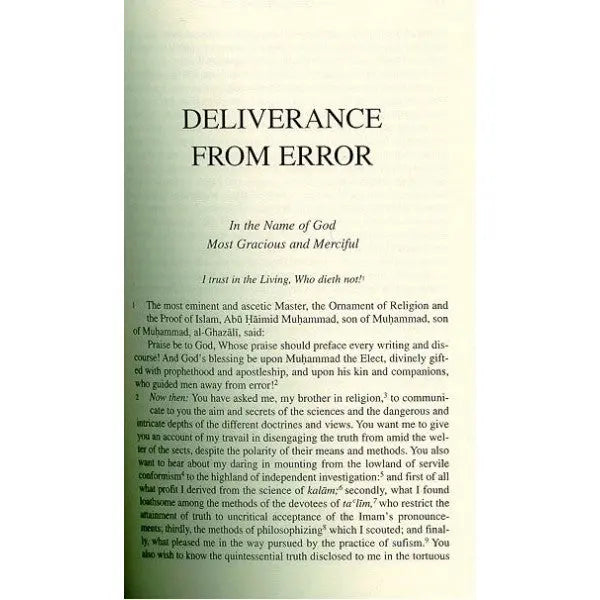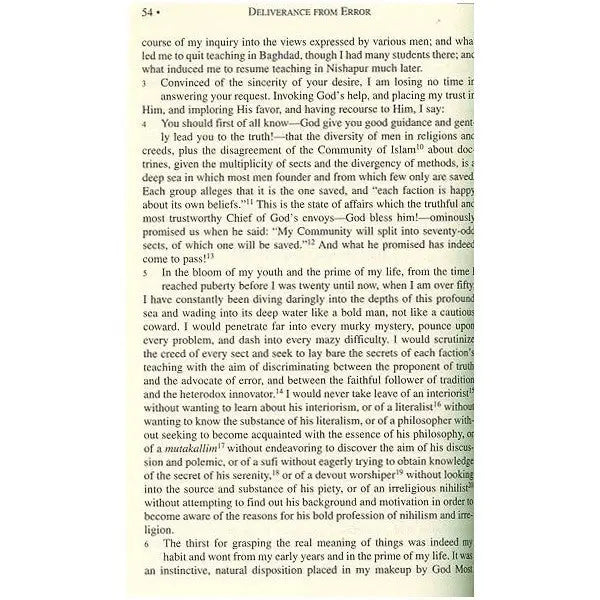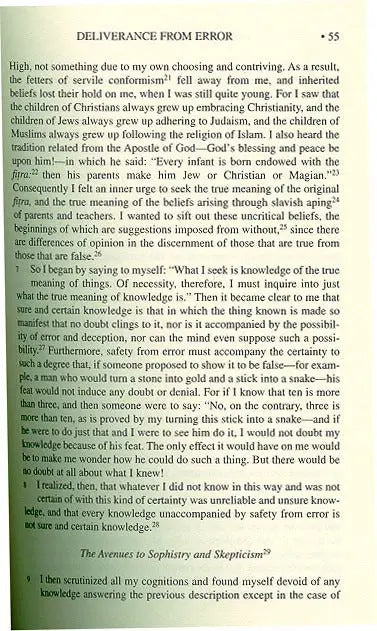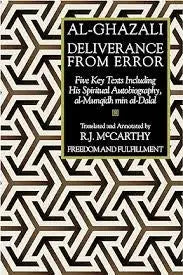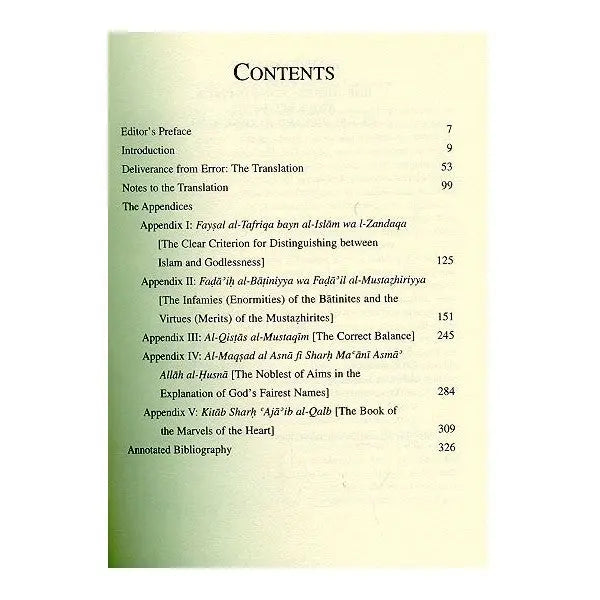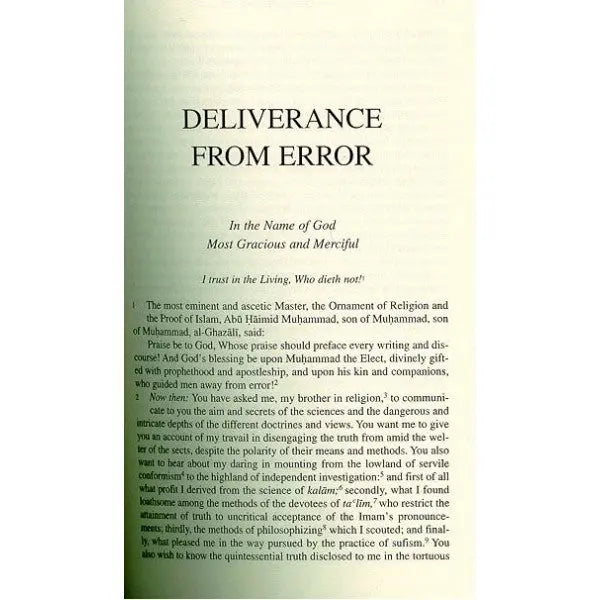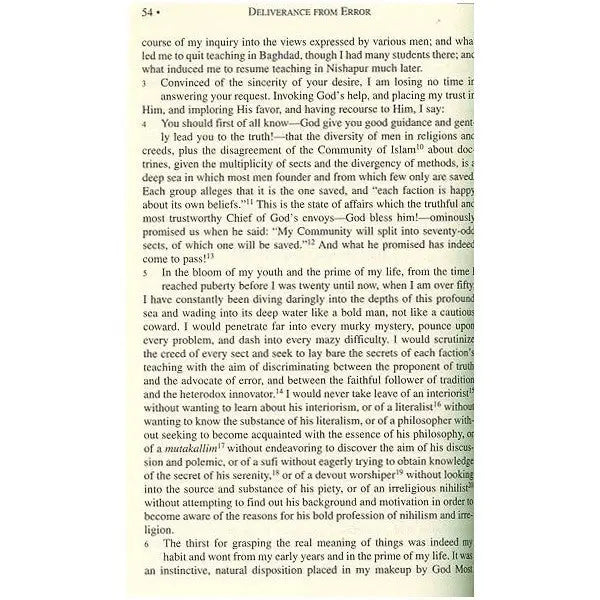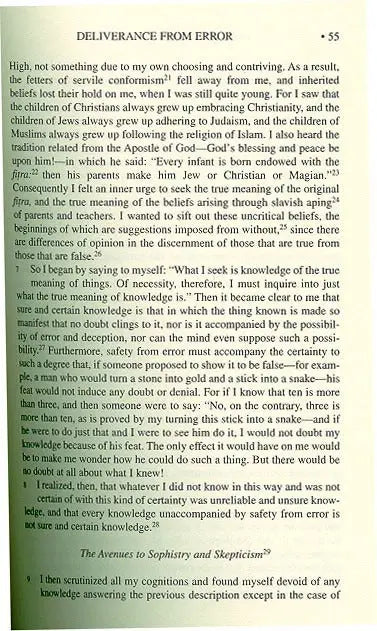One of the most remarkable documents to have come down from classical Islamic civilization, this autobiography of the most influential thinker of medieval Islam (1058-1111) describes his education and his intellectual crisis, which left him so paralyzed by doubt that he was forced to resign the most distinguished academic appointment. His faith returned after years of wandering and seeking, during which he achieved direct knowledge of God in the form of the illuminative experience of the Sufis. Among his most outstanding contributions to Muslim intellectual life were masterly defenses of Islamic orthodoxy, mysticism, and law, against the attacks of those who advocated purely legalistic, or entirely esoteric, readings of the religion. He hence articulated the Islam of the middle way, in balance between the extremes of the letter and the spirit. As such, his works have become a manifesto for modern Muslims struggling against extremist and hence heterodox readings of the faith.
The volume also contains extensive translations from other key works of Ghazali. One is the Definitive Criterion (Faysal al-Tafriqa), which shows the generous, inclusive nature of Islam and the difficulties involved in excluding any individual from it. This is followed by a tract against the Ismaili sect, and writings on conforming the character to the divine, and on the 'Wonders of the Heart', an important Sufi tract about the nature and function of the soul.
This new edition contains five important works of Ghazali in addition to "The Deliverance from Error," which makes the volume a significant contribution to the works of Al-Ghazali currently available. Included as appendices are Kitab Sharh Aja'ib al-Qalb (The Explanation of the Wonders of the Heart), Al-Qistas al-Mustaqim (The Correct Balance), Al-Maqsad al Asna fi Sharh Ma'ani Asma Allah al-Husna (The Noblest Aims in the Explanation of God's Fairest Names), Faysal al-Tafriqa bayn al-Islam wa l-Zandaqa (The Clear Criterion for Distinguishing between Islam and Godlessness), and Fada'ih al-Batiniyya wa Fada'il al-Mustazhiriyya (The Infamies of the Batinites and Virtues of the Mustazhieites).
Fons Vitae has done a great service by republishing McCarthy's Freedom and Fulfillment. This is by far the most scholarly, thoughtful, and sympathetic translation of al-Ghazali's classic autobiography. It also includes several extremely pertinent selections from al-Ghazali's other works, making it the best one-volume selection of his writings.
About Author:
Imam Abu Hamid Muhammad al-Ghazali (450/1058-505/1111 is widely known by the honorific, 'the Sultan of the Saints (awliya) of Allah'. In the history of the Saints of Islam, Shaikh Abd al-Qadir stands out as being unique, in the broad scope of perfection that includes his lineage, his complete development, piety, knowledge of the religion and adherence to the Sacred Law (Sharia), his intimate and direct knowledge of the Divine, and his establishment by the Lord of All the Worlds at the level of Reality (Haqiqa). Shaikh 'Abd al-Qadir lived almost a thousand years ago, but his words transcend the time and place in which they were recorded to span the centuries without difficulty.
Revered to this day as the supreme spiritual helper (al-Ghawth al-A'zam) the Shaikh addresses his audience at a level that bypasses the heart and mind. His discourses are justly ranked among the most beautiful oratory the world has ever known.
He is justly described as a "towering figure" in the history of Islam. He was born in the Iranian town of Tus, studied Islamic law and theology at the Seljuq college in Nishapur, and became a distinguished professor at the famous Nizamiyya University in Baghdad.
Despite his glittering success, he was inwardly dissatisfied, so he abandoned his career for the life of hardship, abstinence and devotion to worship. During ten years of wandering, he experienced a spiritual transformation, in which the Truth came to him at last, as something received rather than acquired.
Blessed with an inner certainty, he then applied his outstanding faculties and vast learning to the task of revitalizing the whole Islamic tradition. Through his direct personal contacts, and through his many writings, he showed how every element in that tradition could and should be turned to its true purpose.

